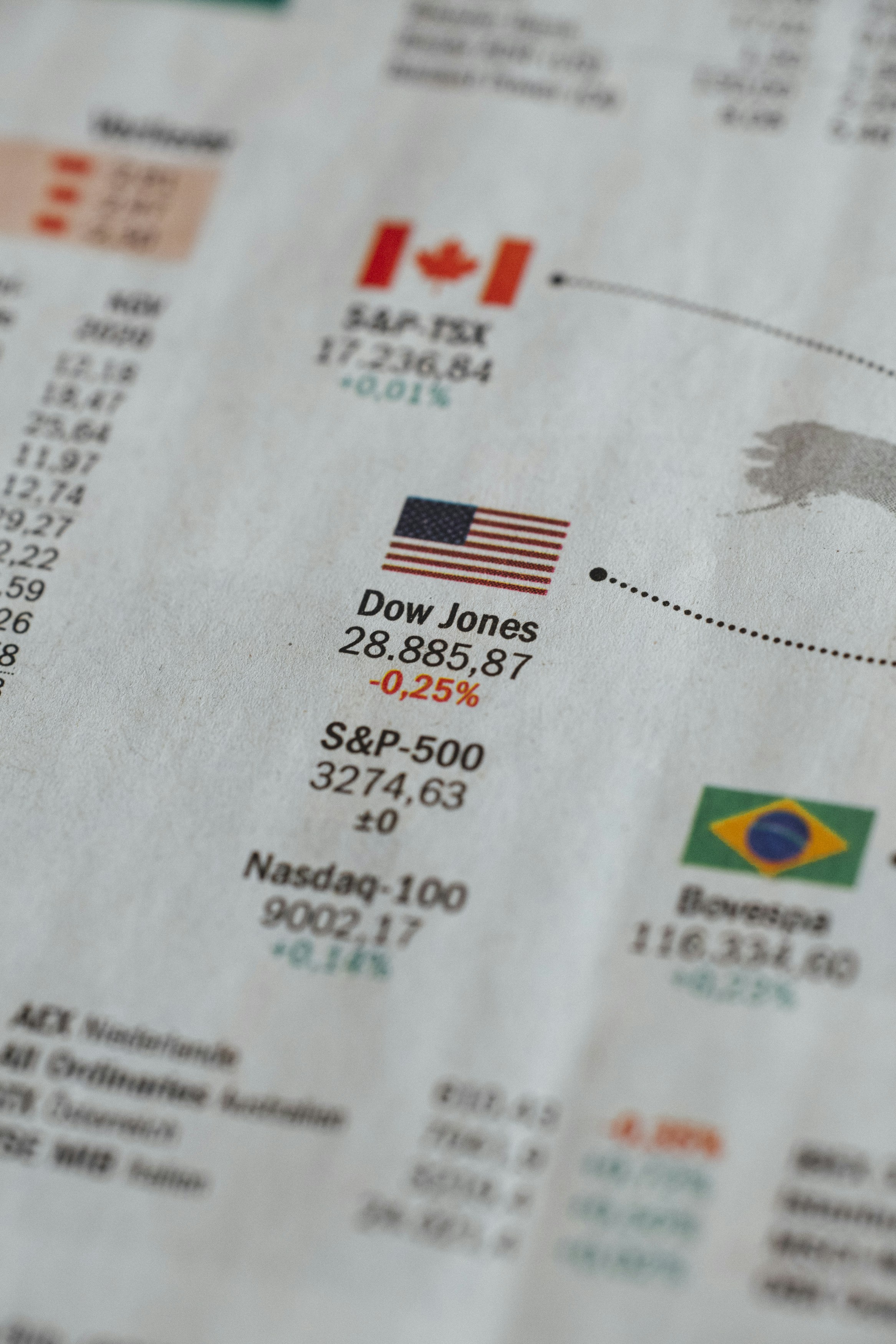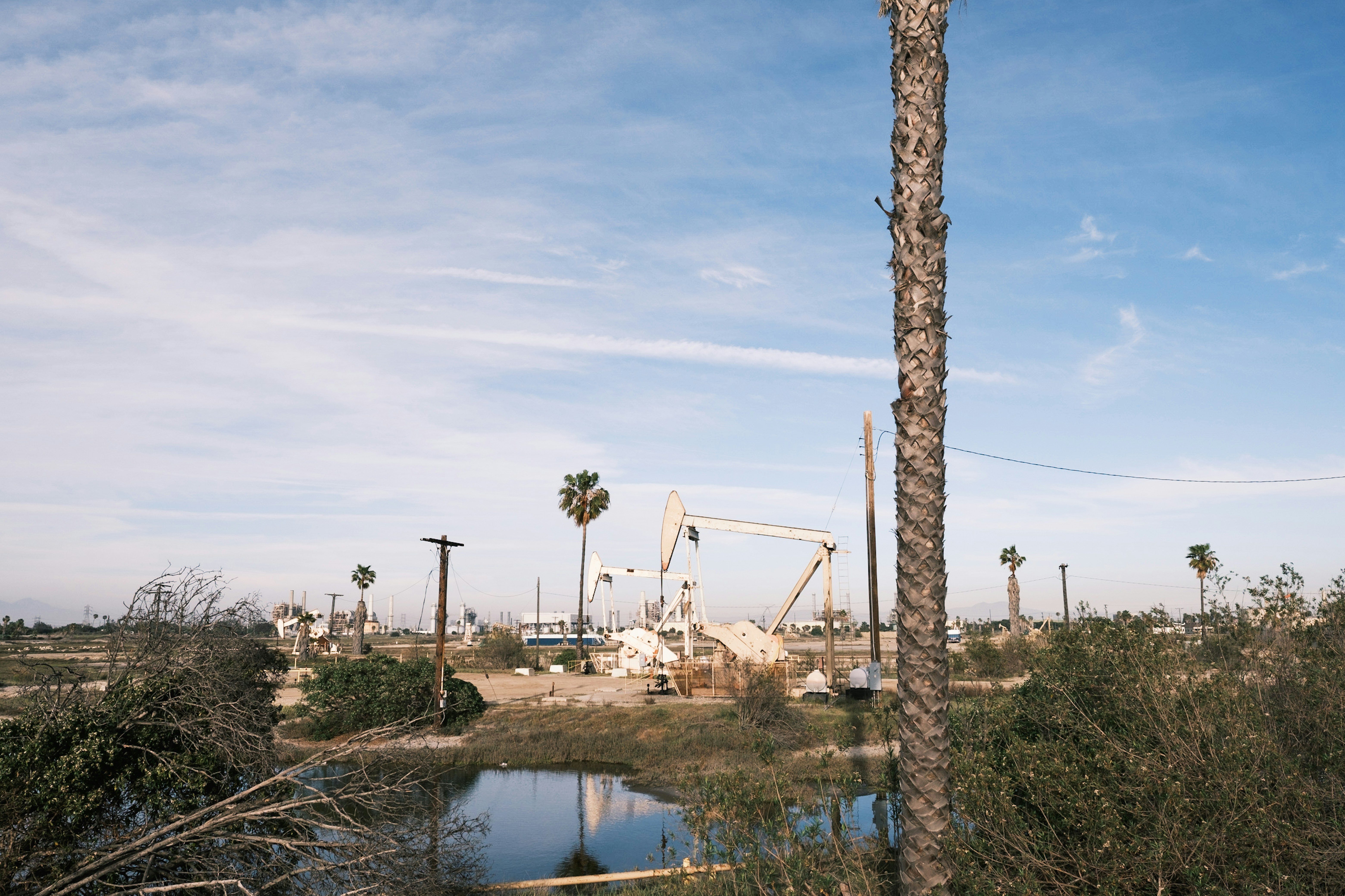
Introduction to Vistra and Its Significance in the Energy Sector
Vistra Energy, a prominent player in the North American energy landscape, has established itself as a significant entity in the generation and distribution of electric power. Founded in 2016, Vistra emerged from the merger of Dynegy and the retail arm of the company, which was historically rooted in the Texan market. The company operates a diverse portfolio of energy-generating facilities, including natural gas, nuclear, and renewable energy sources, reflecting its commitment to sustainable energy practices.
Vistra plays a crucial role in shaping energy distribution and generation across North America. With a presence in multiple states, the company not only provides electricity to millions of consumers but also contributes to the stability and resilience of the grid. By investing in advanced technologies and innovative solutions, Vistra aims to meet the evolving demands of the energy sector. Its strategic initiatives underscore a significant shift toward cleaner energy options, responding to growing concerns about climate change and energy efficiency.
The energy market is evolving, and corporate credit ratings, such as the recently upgraded Rating Decision by Fitch Ratings, are vital in this context. Credit ratings influence the company’s ability to raise capital, impacting its operational strategy and financial stability. A strong rating can facilitate cost-effective financing, enabling Vistra to invest in infrastructure improvements and cleaner energy projects. Conversely, a weaker rating may limit financing options and hinder ambitious growth plans. As the energy sector continues to face challenges, the importance of maintaining a favorable credit rating becomes increasingly paramount for companies like Vistra that play a crucial role in ensuring energy affordability and reliability for consumers.
Understanding Fitch Ratings and Its Methodology
Fitch Ratings is a globally recognized credit rating agency that plays a critical role in assessing the financial health and creditworthiness of various entities, including corporations and governmental bodies. Established in 1914, Fitch provides investors with essential insights through its ratings, which ultimately guide investment decisions. The agency evaluates a variety of factors, such as financial statements, management quality, industry position, and external market conditions, to derive a comprehensive credit rating for a particular entity.
The ratings issued by Fitch are expressed in letter grades, ranging from the highest quality (AAA) to the lowest (D). Each rating category reflects different levels of credit risk. In this context, a ‘BB’ rating signifies that an entity is deemed to have speculative elements, indicating a moderate to high risk in terms of investment. Entities that receive a ‘BB’ rating are considered to have the capacity to meet financial commitments, but they may be more susceptible to adverse conditions compared to those with higher ratings. This distinction is crucial as it impacts the cost of borrowing for companies and shapes investor sentiment.
Fitch’s methodology is rooted in a comprehensive analysis that not only considers quantitative financial metrics, like earnings and cash flow, but also qualitative factors such as business strategy and operational risks. Specifically, the agency evaluates the entity’s ability to generate sustainable cash flows, maintain adequate liquidity, and manage debt levels effectively. As investors seek to understand the implications of a ‘BB’ rating, it is important to acknowledge that while potential returns may be attractive, they are inherently coupled with increased credit risk. Ultimately, understanding Fitch Ratings and its systematic approach enables investors to make informed decisions that align with their financial objectives and risk tolerance.
Recent Developments Leading to the Upgrade
The recent upgrade of Vistra’s Issuer Default Rating (IDR) to ‘BB’ by Fitch Ratings can be attributed to a combination of strategic financial management and favorable market conditions. Over the past year, Vistra has implemented a range of operational improvements that have significantly bolstered its financial metrics. One of the key indicators of this enhanced performance is the company’s consistent revenue growth, which has provided a solid foundation for stability and capital investment. For instance, the implementation of renewable energy projects has not only diversified Vistra’s energy portfolio but also aligned it with current market trends toward sustainability.
Additionally, the reduction of debt levels has played a crucial role in this positive reassessment. Vistra’s management has focused on streamlining operations and improving efficiency, which has resulted in lower operating costs and enhanced profit margins. These efforts have had a direct impact on the company’s credit profile, fostering a more optimistic outlook from Fitch. Higher cash flow generation, coupled with disciplined capital expenditure, has allowed Vistra to manage its obligations effectively, reducing overall financial risk.
The strategic shift towards integrating more renewable power generation into Vistra’s operational framework has not only addressed the increasing regulatory pressures for cleaner energy but also capitalized on the growing consumer demand for sustainable energy solutions. This responsiveness to market conditions has positioned Vistra favorably relative to its peers, establishing it as a competitive player in the energy sector.
A further factor contributing to the upgrade is the macroeconomic environment, which has seen an increase in energy prices, positively influencing market dynamics. This combination of internal efforts and favorable external conditions has culminated in Fitch’s decision to raise Vistra’s credit rating, reflecting the company’s improved financial health and operational resilience.
Impact of the Upgrade on Vistra’s Financial Position
The recent upgrade of Vistra’s Issuer Default Rating (IDR) to ‘BB’ by Fitch Ratings carries significant implications for the company’s financial position. A higher credit rating typically improves a company’s capital structure, offering enhanced opportunities for financing. With the upgraded rating, Vistra is likely to experience a reduction in borrowing costs. This is attributed to lenders’ increased confidence in the company’s ability to meet its financial obligations, which often translates into lower interest rates on new debt issuances.
In addition to reduced borrowing costs, the upgraded rating positively impacts investor sentiment. Investors typically view higher-rated entities as lower-risk, increasing the attractiveness of Vistra’s bonds and equity. This heightened interest not only boosts the company’s market capitalization but also provides a broader base for potential investment. Furthermore, an improved rating may lead to increased liquidity in Vistra’s financial instruments, making it easier for the company to raise funds in the capital markets.
The upgrade may also pave the way for Vistra to pursue significant capital projects or strategic acquisitions that were previously deemed too risky. Access to capital becomes less constrained as the company enhances its financial flexibility, enabling management to capitalize on growth opportunities. Additionally, potential investors might seek positions in Vistra due to the perceived benefits associated with the higher IDR, fostering further interest in the company’s future prospects.
Overall, the implications of Fitch’s rating upgrade are significant; it not only enhances Vistra’s immediate financial standing but also lays the groundwork for sustained growth and investment. By improving access to affordable debt and attracting more investors, the upgraded credit rating is poised to facilitate Vistra’s long-term financial objectives and operational strategies.
Market Reactions and Industry Perspectives
Vistra’s recent upgrade of its Issuer Default Rating (IDR) to ‘BB’ by Fitch Ratings has elicited a notable response from various market participants, illuminating differing perspectives on the energy company’s competitive position and future outlook. Analysts and investors closely observe such credit rating implications as they reflect both creditworthiness and market confidence, which are crucial for investment decisions within the volatile energy sector.
Financial analysts have largely received this upgrade positively, suggesting that it reinforces Vistra’s improving financial fundamentals. Many observers believe that the elevation in the rating signifies increased stability and lower risk associated with the company’s operational strategies. This improved credit profile is expected to bolster investor sentiment, leading to an uptick in share performance and solidifying Vistra’s position as a key player amid the evolving landscape of energy transition. Analysts also indicate that Vistra is capitalizing on its diversified power generation portfolio, which is critical in navigating uncertainties such as fluctuating energy prices and regulatory changes.
Investors have expressed optimism regarding the upgrade, viewing it as an acknowledgment of Vistra’s strategic path toward long-term growth and sustainability. With a stable outlook maintained, stakeholders perceive that the company is well-positioned to enhance its market competitiveness, especially as the sector shifts towards renewable energy sources. Industry experts further echo these sentiments, suggesting that Vistra’s commitment to innovation and cost reduction could lead to more favorable operational efficiencies, ultimately benefiting its market share and customer base.
This solidified market sentiment surrounding Vistra’s upgrade underscores the importance of credit ratings in influencing capital flows and investment strategies within the energy market. As the energy industry continues to evolve, the implications of this upgrade may play a pivotal role in shaping Vistra’s trajectory, providing it with greater leverage as it navigates the challenges and opportunities ahead.
Challenges That May Affect Future Ratings
The recent upgrade of Vistra’s Issuer Default Rating (IDR) to ‘BB’ by Fitch Ratings reflects a positive trajectory in the company’s financial health and operational effectiveness. However, several challenges loom on the horizon that could impede its sustained rating improvement. Among these challenges, regulatory pressures stand out as a significant concern. The energy sector is subject to stringent regulations that can evolve rapidly, potentially impacting profitability and operational flexibility for energy companies like Vistra. Adapting to new policies requires not only agility but also substantial investment in compliance mechanisms, which could strain resources.
Market volatility is another critical factor that could pose risks to Vistra’s future ratings. The energy market is inherently susceptible to fluctuations in supply and demand, influenced by external factors such as geopolitical events, weather conditions, and changes in technology. High volatility can lead to price instability, affecting the revenue streams of energy producers and thereby impacting their ratings. Vistra must navigate this uncertainty while striving to maintain its market position.
Additionally, competition within the energy sector is intensifying, particularly from renewable energy sources. As more companies transition towards sustainable energy solutions, Vistra may face challenges in maintaining its market share and profitability. Failing to innovate and adapt to the evolving market landscape could adversely affect its rating outlook. Lastly, operational inefficiencies can hinder Vistra’s performance. Issues such as aging infrastructure, supply chain disruptions, and workforce challenges could lead to increased costs and reduced operational effectiveness, ultimately influencing credit ratings.
Addressing these potential challenges requires strategic foresight and operational resilience from Vistra. Balancing regulatory obligations, managing market volatility, and staying ahead of competitive pressures will be crucial for maintaining its newly established credit rating.
The Importance of a Stable Outlook
Maintaining a stable outlook is a critical indicator of a company’s operational health and its potential for future growth. For Vistra, Fitch’s decision to affirm a stable outlook following the upgrade of its Issuer Default Rating (IDR) to ‘BB’ demonstrates the agency’s confidence in the company’s financial stability and strategic direction. This outlook suggests that Vistra is well-positioned to navigate market fluctuations without significant disruptions to its operations, thereby enhancing investor trust.
Market conditions play a significant role in sustaining such an optimistic perspective. The energy sector, which is where Vistra mainly operates, has been characterized by fluctuating demand and shifting regulatory landscapes. Despite these challenges, Vistra has managed to establish itself as a reliable entity. The firm’s diversified energy portfolio, including renewable energy sources alongside traditional power generation, enables it to mitigate risks associated with market volatility. This strategic diversification not only secures revenue streams but positions Vistra to capitalize on trends like the increasing shift towards sustainable energy solutions.
Moreover, a stable outlook signals to stakeholders—ranging from investors to customers—that the company possesses robust risk management practices and operational effectiveness. The management’s proactive approach to addressing market changes, including investments in technology and infrastructure, further reinforces this notion. By focusing on enhancing operational efficiency and delivering value, Vistra can maintain its competitive edge in the evolving energy market.
Ultimately, a stable outlook from a recognized rating agency like Fitch is not merely a reflection of past performance, but an encouraging signal about Vistra’s commitment to sound governance and strategic planning. This kind of stability attracts investment, fosters consumer confidence, and fortifies the company’s reputation in a highly competitive and rapidly changing industry.
Strategic Initiatives Post-Rating Upgrade
Following the recent upgrade of Vistra’s Issuer Default Rating (IDR) to ‘BB’ by Fitch Ratings, the company is well-positioned to capitalize on its enhanced market credibility. This positive development opens multiple avenues for Vistra to implement strategic initiatives aimed at strengthening its position within the energy sector. With a stable outlook, the company can now pursue growth opportunities with renewed confidence and attract potential investors.
One of the primary strategic initiatives that Vistra may consider involves expanding its renewable energy portfolio. The upgraded rating may facilitate access to lower-cost financing options, allowing the company to invest in sustainable energy projects that align with current market trends. By diversifying its energy sources and increasing its commitment to environmentally friendly practices, Vistra can not only improve its corporate responsibility profile but also capture a growing segment of environmentally-conscious consumers.
Additionally, leveraging the enhanced rating can provide Vistra with a unique competitive advantage as it undertakes partnerships or acquisitions in the energy market. A higher credit rating typically translates into improved negotiating power, thus allowing the company to pursue synergies with other firms that can bolster its operational efficiency and market reach. Investing in innovative technologies or securing strategic alliances will help Vistra sustain its growth trajectory and meet evolving consumer demands effectively.
Furthermore, with an emphasis on digital transformation, Vistra may implement advanced data analytics and smart grid technologies to optimize energy management and distribution. Initiatives focused on enhancing customer experience through innovative service offerings will further position Vistra as an industry leader. By leveraging its upgraded rating effectively, Vistra is poised to explore and implement strategic initiatives that enhance sustainability, operational efficiency, and market growth in the coming years.
Conclusion: Looking Ahead for Vistra Energy
As highlighted throughout this blog post, Fitch Ratings’ upgrade of Vistra Energy’s Issuer Default Rating (IDR) to ‘BB’ marks a significant milestone for the company. This elevation reflects a robust assessment of Vistra’s operational performance and financial stability within a dynamic energy market. The stable outlook maintained by Fitch indicates a positive trajectory that is crucial for investors and stakeholders who are monitoring Vistra’s growth potential.
Vistra Energy has demonstrated its commitment to strategic initiatives aimed at enhancing its market position and operational efficiency. By investing in renewable energy sources and modernizing its existing infrastructure, the company not only addresses the increasing demand for sustainable energy solutions but also mitigates risks associated with volatility in fossil fuel markets. Such diversification in its energy portfolio is increasingly recognized as a cornerstone for long-term sustainability and profitability.
Moreover, Vistra’s focus on reducing debt levels and improving liquidity enhances its financial resilience. These actions fortify the company’s standing in a competitive landscape while ensuring that it remains agile in responding to evolving market conditions. The improved IDR rating sends a clear signal to investors about the health and governance of Vistra Energy, encouraging trust and long-term investment in its future endeavors.
The interplay of regulatory changes, technology advancements, and market dynamics will undoubtedly shape the future of Vistra Energy. Nevertheless, the company’s proactive approach, bolstered by Fitch’s upgraded rating, sets a promising foundation for forthcoming opportunities. As stakeholders reflect on these developments, it is imperative to recognize the potential for Vistra to emerge as a leader in the energy sector, poised to harness the benefits of ongoing transitions towards a greener economy.

